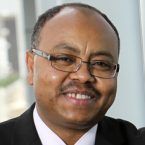The future of Sudan after lifting the US sanctions
REGISTRATION & DIRECTIONSaturday 28th October 2017 (14:00-17:00)
University Square Stratford – London, United Kingdom
Samir Daoud, Detective and Financial Investigator, Metropolitan Police, UK
Dr. Sara Taha, Specialty Registrar in Neurosurgery, National Health Services, UK
Ammar Hamoda, Freelance ICT Professional, UK
Wail Omer Abdin, Lawyer and Founded, Sudanese Commercial Law Office, UK
Muna Ahmed Eltayeb, Education and Child Development, UK
Dr. Mohamed ElNair, Associate Professor of Accounting, Almughtaribeen University and Sudan University of Science & Technology, Sudan
This debate will follow the previous debate entitled “SUDAN AT A CROSSROADS: Towards a Vision for the Future & Youth Empowerment”, held in London 14th January 2017. The debate is also an excellent opportunity to report the various views and contribution of the Sudanese Diaspora in the UK and other parts of the world on the future development of their country of origin. It is hoped that the debate will be a good opportunity for students, researchers, practitioners, policy-makers, ordinary citizen to reflect on the future of Sudan.
Early this month (6 October 2017), the US government has lifted parts the sanctions against Sudan towards normalizing relations which was promoted by Sudan’s efforts to end conflicts within the country, allowing good access for humanitarian purposes as well as good cooperation with the US on regional conflicts and compacting terrorism. The decision, which ends more than two decades of economic sanctions, received warm welcome across the world and it is hoped to contribute significantly to the betterment of the lives of the Sudanese people. The key question however, which this seminar will attempt to answer is: what Sudan should do to realise its potential after lifting the sanctions!
The debate aims to critically analyse the potential for the growth of Sudan’s key sectors (agricultural and animal sectors, industry, etc.); what are the lessons learned from the past 20 years under the heavy US sanctions and what are the challenges for realising its potential, so that Sudan can become, if not an agricultural power, at least an exporter of food, and thus cease to rank among the poorest countries in the world. The seminar will also focus on the application and utilisation of science, technology and innovation (STI) for addressing societal challenges, thereby promoting sustainable development (SD) in Sudan. In its present forms, STI are not working for Sudan. In addition, the potentials for STI to help promote SD in Sudan, by improving productivity and quality, enhancing governance, business practices and public policies, is yet to be fully harnessed in Sudan.
Sudan could be – with its massive untapped land and water potential – the bread basket of the world. Sudan has always been seen as the “largest farm in the world” in the Gezira irrigated Cotton scheme (Mohamed, et al, 2008 (1); Yousif, 1997 (2) and was until recently the biggest producer of Gum Arabic in the world. Sudan was optimistically referred to as an “awakening giant” by the hype merchants of the 1970s, and its vast plains were seen by development experts as a potential “bread-basket” – either for Africa or for the Arab World across the Red Sea (O’Brian, 1981) (3). The Food and Agriculture Organisation (FAO) of the United Nations considered Sudan (with Canada and Australia) as the future bread basket of the world (The Economist, May 23, 2009) (4). Sudan also have good access to the sea from many neighbouring countries and therefore, Sudan is also being considered as an investment destination for agricultural investment, particularly from oil-rich Arab countries.
This multi-disciplinary debate is part of our Sustainability Debate Series aims to provide the participants the opportunity to share their knowledge and experiences from all over the world on major global issues; the emphasis is on the importance of evidence-based planning to overcome the challenges facing global efforts to achieve a sustainable future. For more details watch presentations from WASD’s previous events.
Join us for this exciting debate, where international experts and high level Diaspora from the public and private sectors will give their views on the critical situation in Sudan and how the Diaspora can contribute to shaping the future of Sudan. During the debate the panel will answer questions posted by the participants, please send your question for the panel to the debate coordinator (WASD@wasd.org.uk) by the 22nd October 2017.
Partners Sudan Knowledge | MEKEI | UNMGCY
- Mohamed, A. E., Elhag, A. E. and Ahmed, A. (2008) Food Security in Sudan: Policies and Strategies. United Nations World Food Programme (UNWFP)/Inderscience, Geneva: Switzerland. 158 Pages.
- Yousif, G. M. (1997) The Gezira Scheme: The Greatest on Earth, First print. Earth Council: http://www.ecouncil. ac.cr/.
- O’Brian, J. (1981) “Sudan: an Arab breadbasket”, MERIP Reports No. 99, pp.22–26.
- The Economist, May 23, 2009


